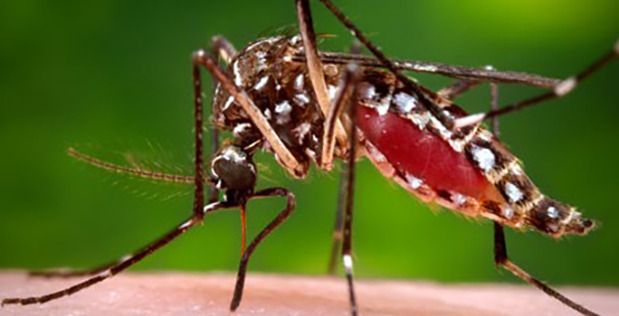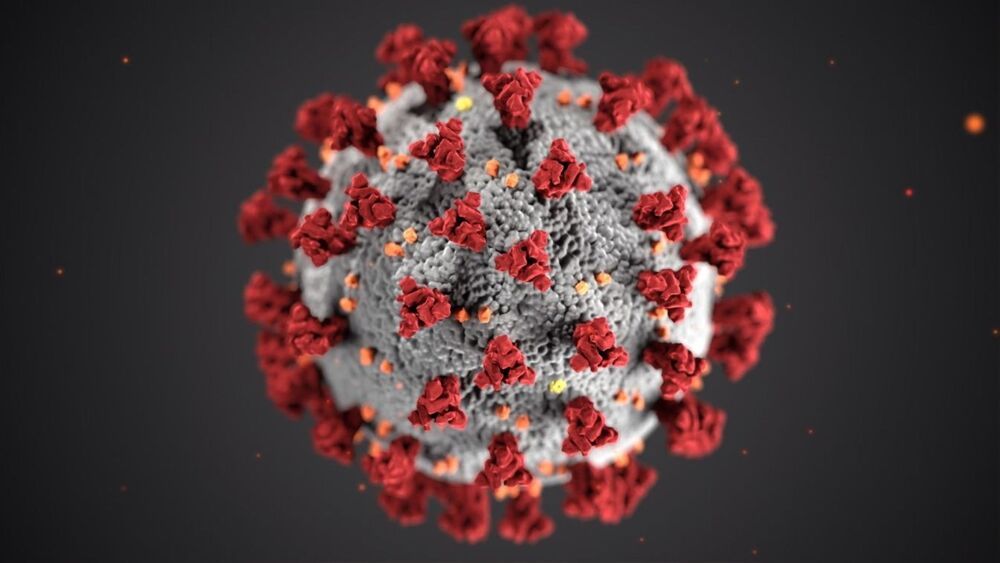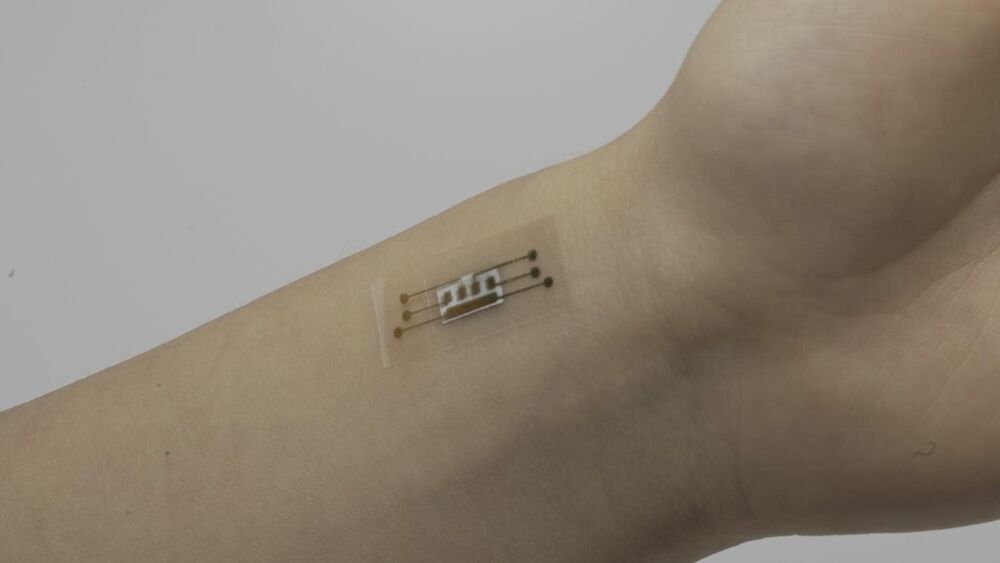An exercise in pure mathematics has led to a wide-ranging theory of how the world comes together.


Here’s my latest video!
Animal products, including meat, cheese, and eggs contain carnitine and choline, metabolites that are converted by gut bacteria into TMA, which is then converted by the liver into TMAO. Plasma levels of TMAO are associated with an increased risk of disease and death, so should we limit intake of these animal products?
Separately, fish contains relatively high levels of TMAO, and blood levels of TMAO spike after fish consumption, but there is a decreased all-cause mortality risk for fish consumers. To explain these disparate findings, other factors may be involved in the TMAO-health and disease story. In the video, I discuss the impact of kidney function on plasma levels of TMAO, disease and mortality risk.


A technology for building quantum computers that has long been sidelined by major companies is gaining momentum. As quantum computing has transformed from academic exercise to big business over the past decade, the spotlight has mostly been on one approach — the tiny superconducting loops embraced by technology giants such as IBM and Intel. Superconductors enabled Google last year to claim it had achieved ‘quantum advantage’ with a quantum machine that for the first time performed a particular calculation that is beyond the practical capabilities of the best classical computer. But a separate approach, using ions trapped in electric fields, is gaining traction in the quest to make a commercial quantum computer.

Amazon is entering the pharmacy business with a new offering called Amazon Pharmacy, allowing customers in the United States to order prescription medications for home delivery, including free delivery for Amazon Prime members.
Amazon has been quietly building out its pharmacy offering for several years after ramping up internal discussions in 2017 and acquiring PillPack in 2018. The pharmacy space is notoriously complex and competitive in the U.S., and Amazon Pharmacy is built in part on PillPack’s infrastructure, including its pharmacy software, fulfillment centers and relationships with health plans.
Amazon Pharmacy, announced Tuesday, is the company’s biggest push yet into $300 billion market, and threatens the dominance of traditional pharmacies like CVS and Walgreens, as well as other large retailers that offer pharmacy services, including Walmart.

The quiet shift in strategy, which brings the Vision Fund’s approach closer to that of a traditional venture capital investor, may ease concerns over big, bold bets going sour, a factor that has left a major gap between SoftBank’s market capitalization and the sum of its investments.
TOKYO — SoftBank Group’s Vision Fund is turning to a new strategy as a global pandemic and government stimulus distort tech valuations: Invest smaller in hopes for bigger returns.
After raising nearly $100 billion and investing $85 billion in high-profile companies like Uber Technologies, WeWork and ByteDance over three years, the Vision Fund is now focusing on making smaller bets in early-stage startups.
Among the investments it has led are $100 million in Zhangmen, a Chinese online education startup; $150 million in Unacademy, an Indian peer; and $100 million in Biofourmis, a U.S. startup that tracks health data using wearable devices. In total, it has approved 19 investments worth $3.5 billion for “Vision Fund 2” — a vehicle currently funded entirely by SoftBank.

A team of researchers from Delft University of Technology (TU Delft), Leiden University, Tohoku University and the Max Planck Institute for the Structure and Dynamics of Matter has developed a new type of MRI scanner that can image waves in ultrathin magnets. Unlike electrical currents, these so-called spin waves produce little heat, making them promising signal carriers for future green ICT applications.
MRI scanners can look into the human body in a non-invasive manner. The scanner detects the magnetic fields radiated by the atoms inside, which makes it possible to study the health of organs even though they are hidden underneath thick layers of tissue.
The non-invasive, see-through power of MRI is desirable for many research fields and industries. It could be particularly useful as an imaging tool in nanotechnology and the chip industry. Being able to detect signals in computer chips and other nanodevices would facilitate optimizing their performance and reducing their heat production. However, the millimeter resolution of conventional MRI is insufficient to study chip-scale devices. A team of researchers led by TU Delft have now developed a new method for sensing magnetic waves at the sub-micrometer scale.

ReVector researchers have expertise in synthetic biology, human microbiome, and mosquito studies.
The American Society for Microbiology estimates that there are trillions of microbes living in or on the human body that constitute the human microbiome1. The human skin microbiome (HSM) acts as a barrier between humans and our external environment, protecting us from infection, but also potentially producing molecules that attract mosquitos. Mosquitos are of particular concern to the Department of Defense, as they transmit pathogens that cause diseases such as chikungunya, Zika, dengue, West Nile virus, yellow fever, and malaria. The ReVector program aims to maintain the health of military personnel operating in disease-endemic regions by reducing attraction and feeding by mosquitos, and limiting exposure to mosquito-transmitted diseases.
Genome engineering has progressed to the point where editing the HSM to remove the molecules that attract mosquitos or add genes that produce mild mosquito repellants are now possible. While the skin microbiome has naturally evolved to modulate our interactions with the environment and organisms that surround us, exerting precise control over our microbiomes is an exciting new way to provide protection from mosquito-borne diseases.
In order to advance that concept, DARPA has awarded ReVector Phase 1 contracts to two organizations: Stanford University and Ginkgo Bioworks. These performers are tasked with developing precise, safe, and efficacious technologies to modulate the profile of skin-associated volatile molecules by altering the organisms that are present in the skin microbiome and/or their metabolic processes.

Most efforts to combat the coronavirus have focused on public health measures and the race to develop a vaccine. However, a team from Columbia University, Cornell University, and others has developed something new: a nasal spray that attacks the virus directly. In a newly released study, the concoction was effective at deactivating the novel coronavirus before it could infect cells.
Like all viruses, SARS-CoV-2 (the causative agent of COVID-19) needs to enter a cell to reproduce. The virus injects its RNA genome and hijacks cellular machinery to make copies of itself, eventually killing the cell and spreading new virus particles to infect other cells. Gaining access to a cell requires a “key” that fits into a protein lock on the cell surface. In the case of SARS-CoV-2, we call that the spike protein, and that’s where the new nasal spray blocker attacks.
The spike protein “unzips” when it meets up with a cell, exposing two chains of amino acids (the building blocks of proteins). The spray contains a lipoprotein, which has a complementary strand of amino acids linked with a cholesterol particle. The lipoprotein inserts itself into the spike protein, sticking to one of the chains that would otherwise bind to a receptor and allow the virus to infect the cell. With that lipoprotein in the way, the virus is inactivated.

Real-time health monitoring and sensing abilities of robots require soft electronics, but a challenge of using such materials lie in their reliability. Unlike rigid devices, being elastic and pliable makes their performance less repeatable. The variation in reliability is known as hysteresis.
Guided by the theory of contact mechanics, a team of researchers from the National University of Singapore (NUS) came up with a new sensor material that has significantly less hysteresis. This ability enables more accurate wearable health technology and robotic sensing.
The research team, led by Assistant Professor Benjamin Tee from the Institute for Health Innovation & Technology at NUS, published their results in the prestigious journal Proceedings of the National Academy of Sciences on 28 September 2020.